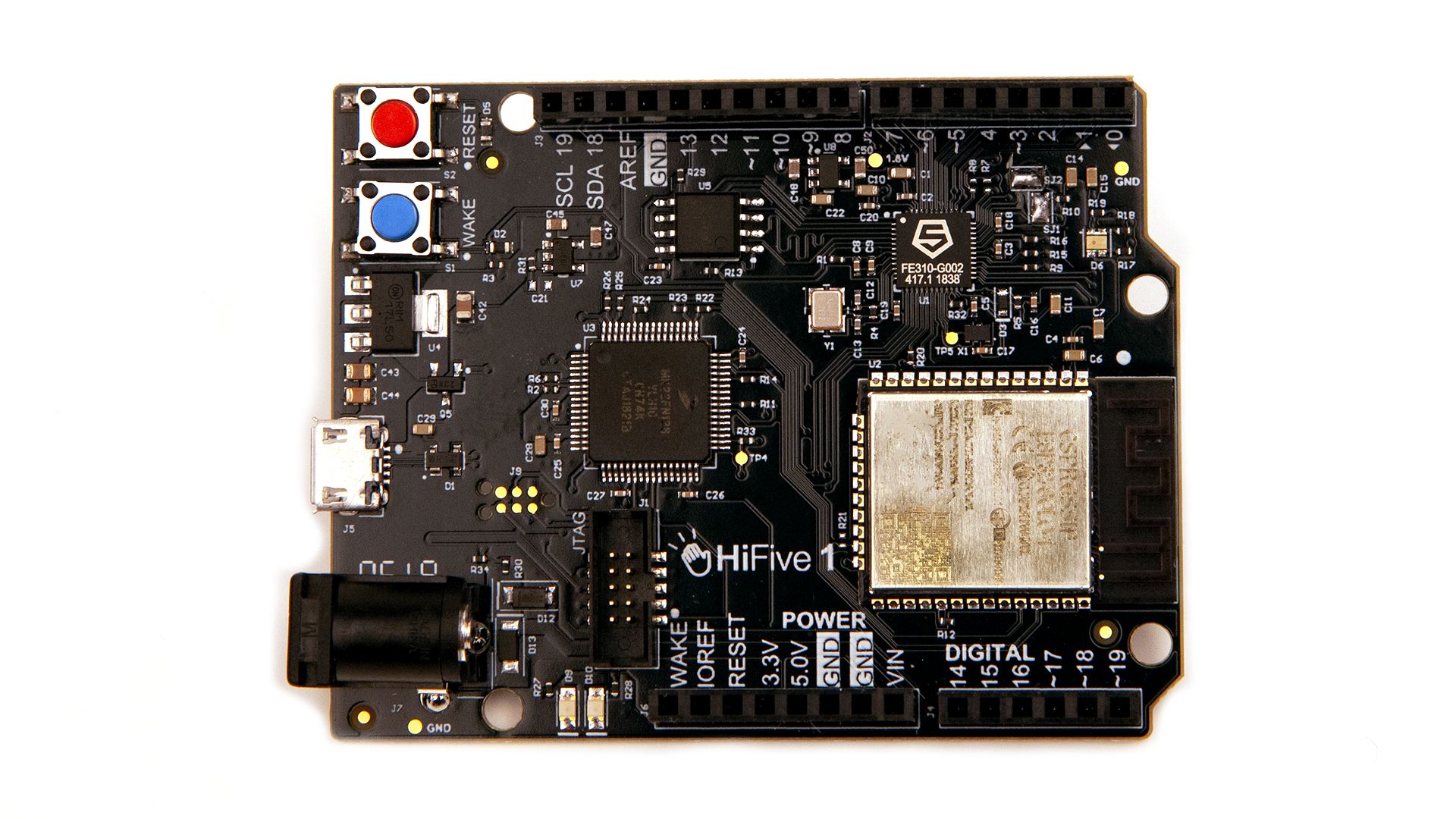HiFive1 Rev B
Todo
There is currently no support for GPIO/SPI/I2C/RTC/WDT/PWM, or RISC-V user mode. If you are interested in adding one of these features, please see Contributing.

The HiFive1 Rev B development board.
You can learn more about this board on the vendor’s documentation page: https://www.sifive.com/boards/hifive1-rev-b#documentation
Features
Off-chip WiFi/Bluetooth networking
2 UART interfaces
9 PWM pins
19 digital IO pins
1 SPI controller with 3 CS pins
1 I2C interface
32Mbit SPI flash memory off-chip
Power Supply
The board operates at 3V3 and 1V8 logic levels, but I/O voltage are all 3V3. It can be supplied by a 5V USB input or a 7-12V jack.
Installation
Download and install the toolchain:
$ curl https://static.dev.sifive.com/dev-tools/riscv64-unknown-elf-gcc-8.3.0-2019.08.0-x86_64-linux-ubuntu14.tar.gz
Download and install the J-Link Software Documentation Pack from https://www.segger.com/downloads/jlink/.
$ sudo apt install JLink_Linux_V656b_x86_64.deb
If you are planning to run NuttX on the QEMU version of this board, you will need to build and install QEMU:
$ git clone https://github.com/qemu/qemu
$ cd qemu
$ ./configure --target-list=riscv32-softmmu
$ make
$ sudo make install
Building NuttX
If building QEMU, make sure to select the option
CONFIG_ARCH_CHIP_FE310_QEMU=y in the Kconfig menu (make menuconfig).
Flashing
Flash NuttX with the J-Link and run:
$ picocom -b 115200 /dev/ttyACM0
$ /opt/SEGGER/JLink_V656b/JLinkGDBServer -device FE310
$ riscv64-unknown-elf-gdb ./nuttx
(gdb) target extended-remote:2331
(gdb) load nuttx
(gdb) c
If running on QEMU, you can use the following command:
$ qemu-system-riscv32 -nographic -machine sifive_e -kernel ./nuttx
Configurations
To configure NuttX, use the following command:
$ ./tools/configure.sh hifive1-revb:<config>
Where <config> is one of the configurations listed below.
nsh
A simple configuration including the NSH shell.